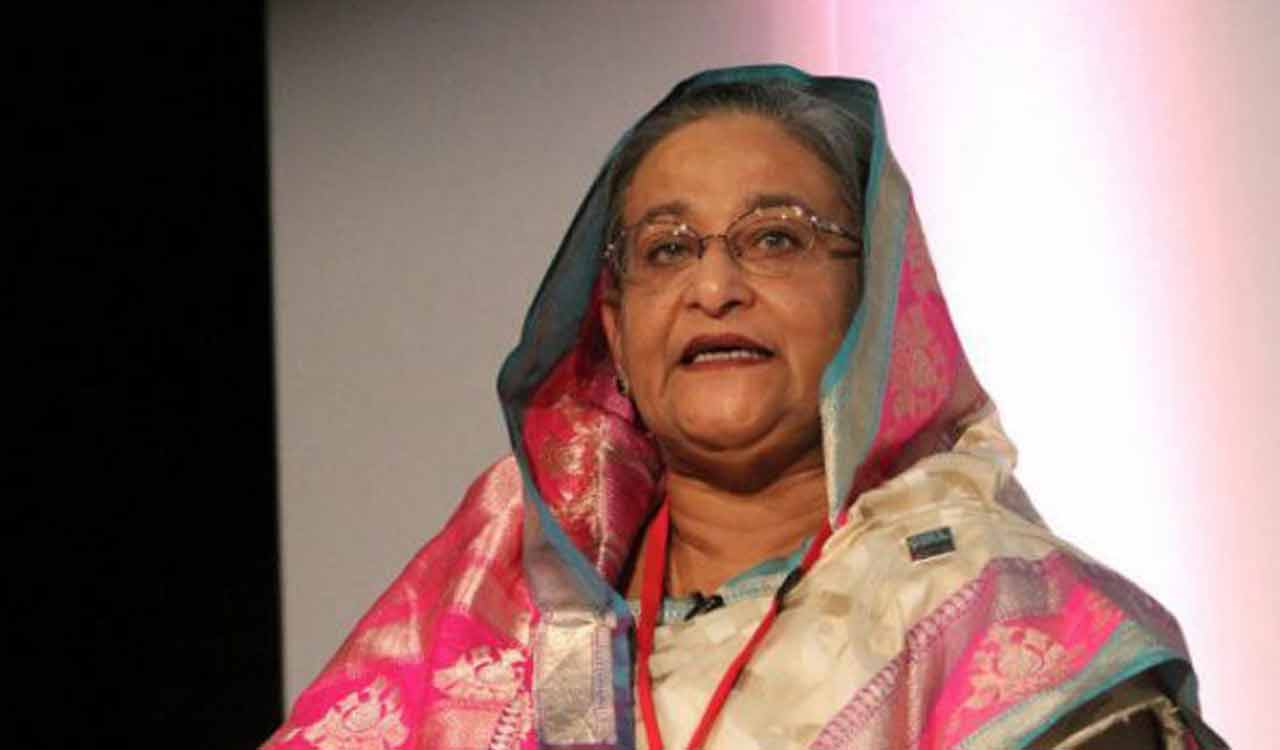The return of a trustworthy ally in economic cooperation and fight against terrorism bodes well for New Delhi
Published Date – 11:57 PM, Thu – 21 December 23

Prime Minister Sheikh Hasina
The outcome of the upcoming national elections in Bangladesh is bound to have an impact on bilateral relations with India, particularly against the backdrop of China’s rise in the region. The 14-party alliance led by Prime Minister Sheikh Hasina is pitted against the Bangladesh Nationalist Party and Jamaat-e-Islami combine in what is seen as a fierce ideological battle. New Delhi is betting big on Hasina’s return to power, for a fourth term, because of the Awami League government’s decent track record in reining in the extremist elements in the country.
The opposition players, especially Islamist parties, could be destabilising if they capture power, with dangerous implications for India’s interests. India would much rather see the Awami League stay in power. It is widely believed that the Modi-Hasina camaraderie is the reason why India-Bangladesh relations have been often described as being in a “golden chapter”. In Hasina’s regime, India finds a government that is focused on anti-terrorism, and has been crucial for the flourishing of India’s Northeast.
The Khaleda Zia-led BNP, in tandem with the Islamist groups, is seen as an ideologically anti-India grouping. If it comes to power, the diplomatic relations with India can get complicated, disrupting regional stability. India relies on Bangladesh to some extent to help bolster security at its border regions. Insurgents from north-eastern States often take shelter in Bangladesh via porous border routes amid rising volatility in these regions in recent years.
In the past, Hasina had firmly addressed India’s security and connectivity concerns through tough counterterrorism measures and transit and coastal shipping agreements that help the Indian mainland connect easily to the Northeast. Any major shift in Bangladesh’s political dynamics is bound to have an immediate impact on India because the two countries have, over decades, developed deep political, economic and cultural ties. India views Hasina as a stable ally whose electoral victory would be a positive development. The return of a trustworthy ally in economic cooperation and in the fight against terrorism bodes well for New Delhi. India’s plans to forge a viable alternative to the South Asian Association for Regional Cooperation rest on Bangladesh, given its location bridging South Asia and South-East Asia. Since becoming the Prime Minister for the first time in 2008, Hasina has been determined to fight terrorism.
While the two countries share a 4,000km border, it has been peppered by ethnic conflicts, sporadic infiltration and smuggling of fake currency. Under her rule, insurgency dipped in the Northeast, with kingpins of militant groups such as the United Liberation Front of Assam general secretary Anup Chetia being handed over to India. Under Hasina’s rule, Bangladesh’s economic growth has soared, averaging over 7%. In her poll manifesto, she promised 9% growth if voted back to power. As the Rohingya crisis deepened in Myanmar, her move to take in the refugees was appreciated by the international community.




